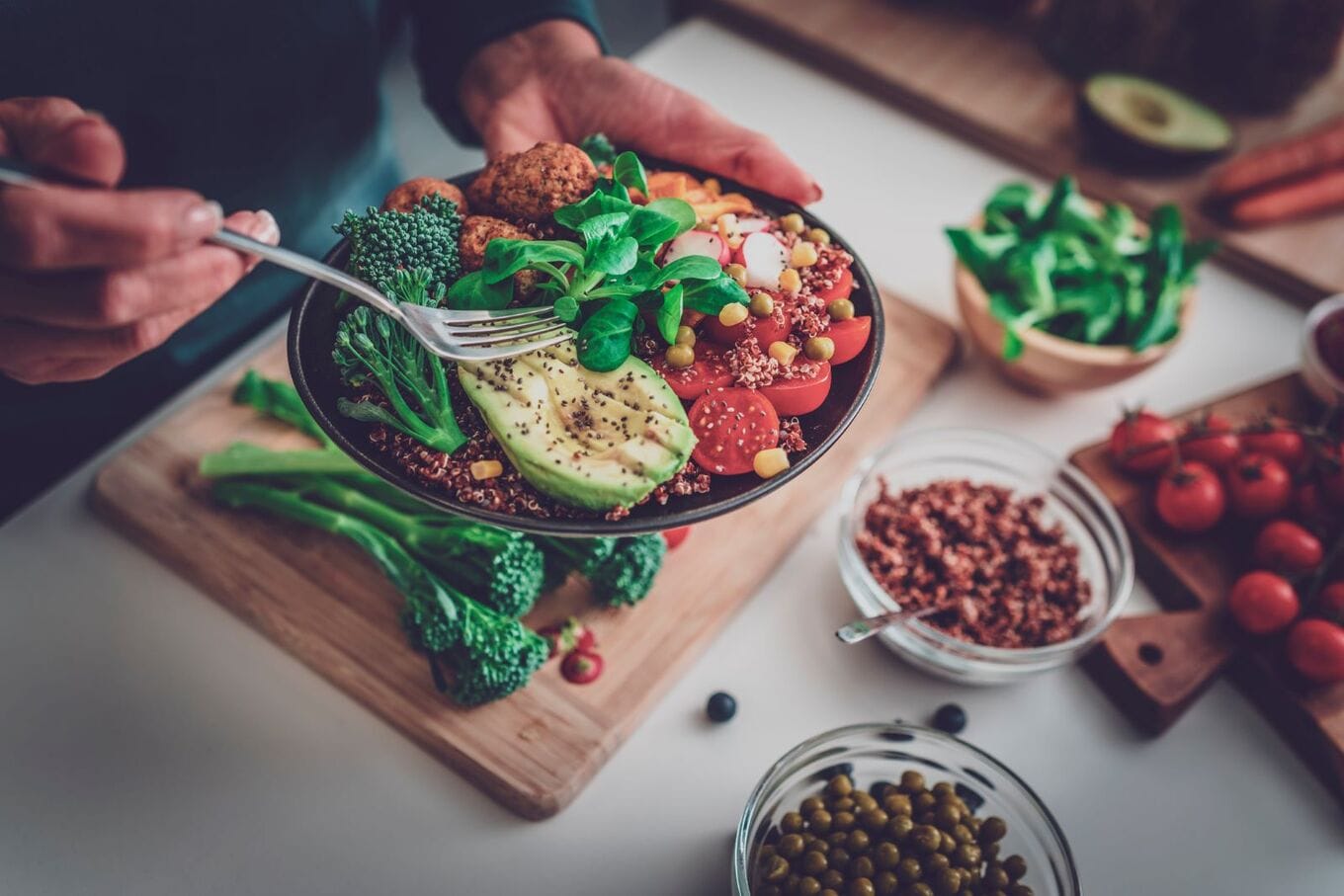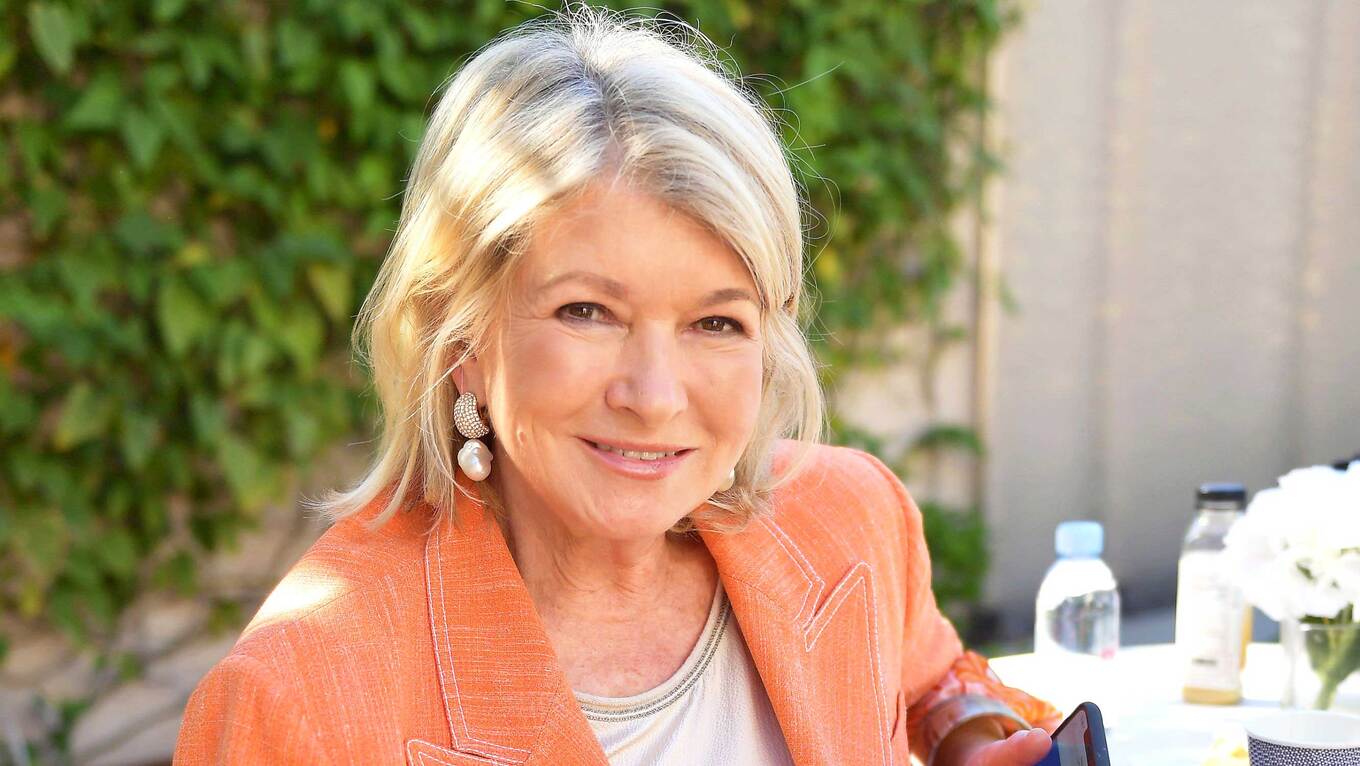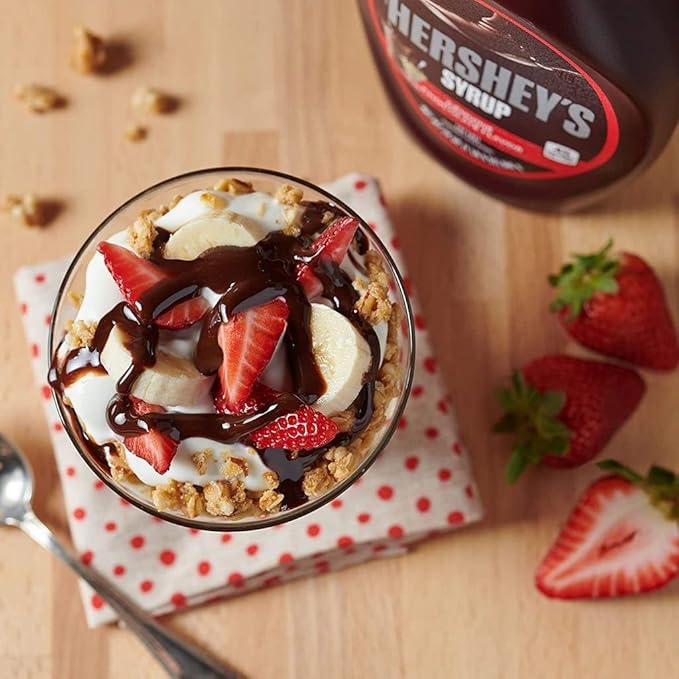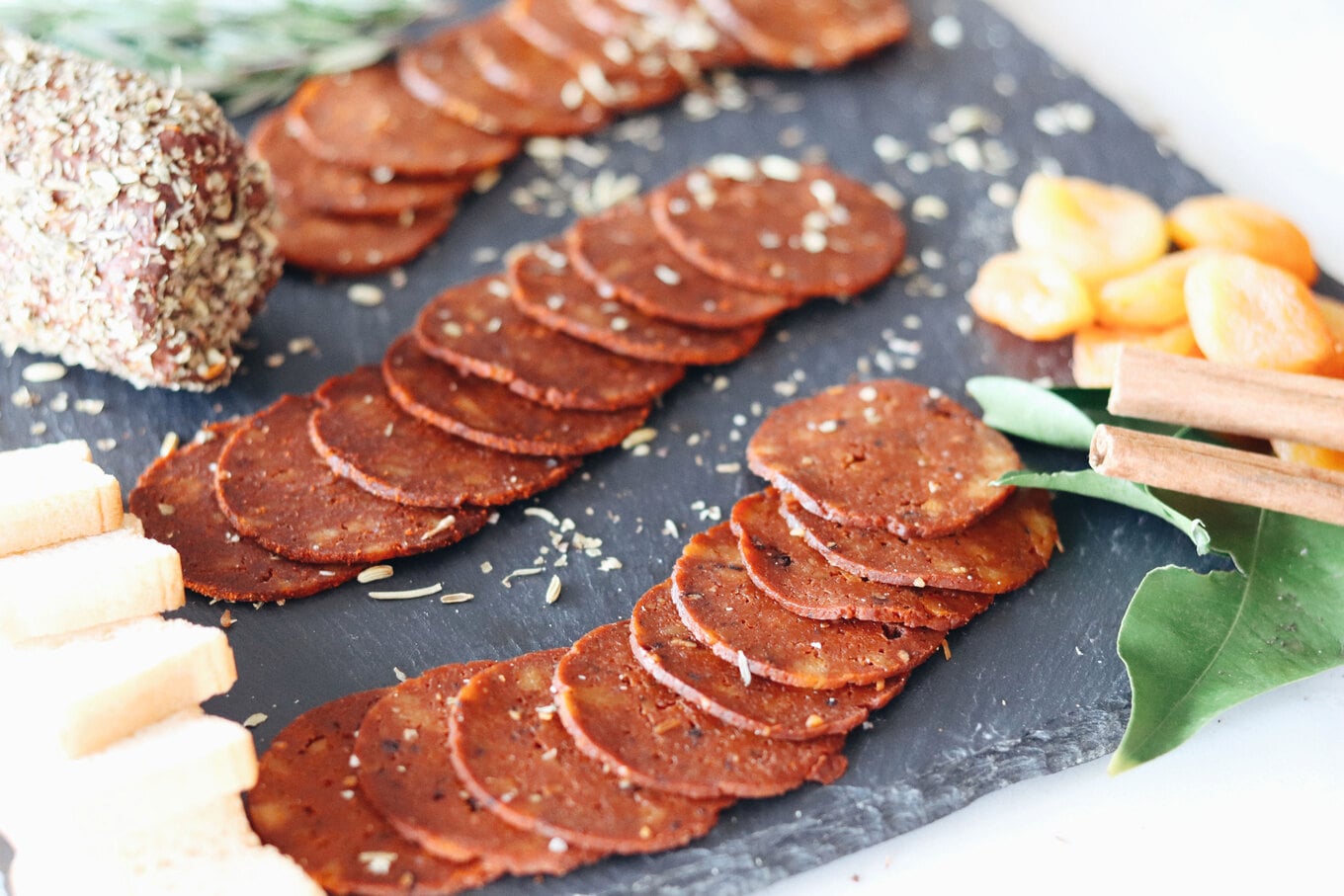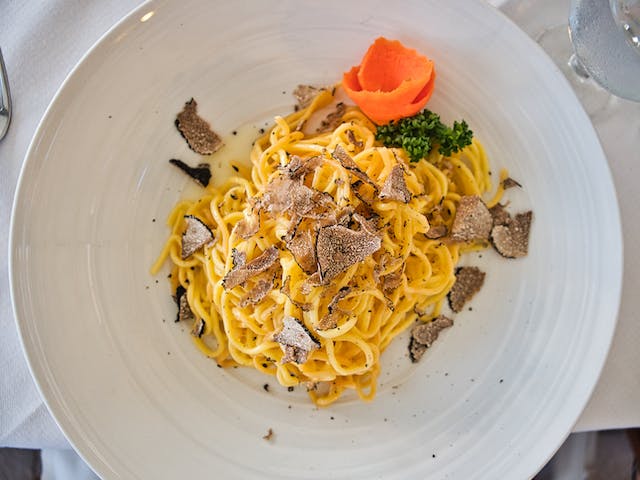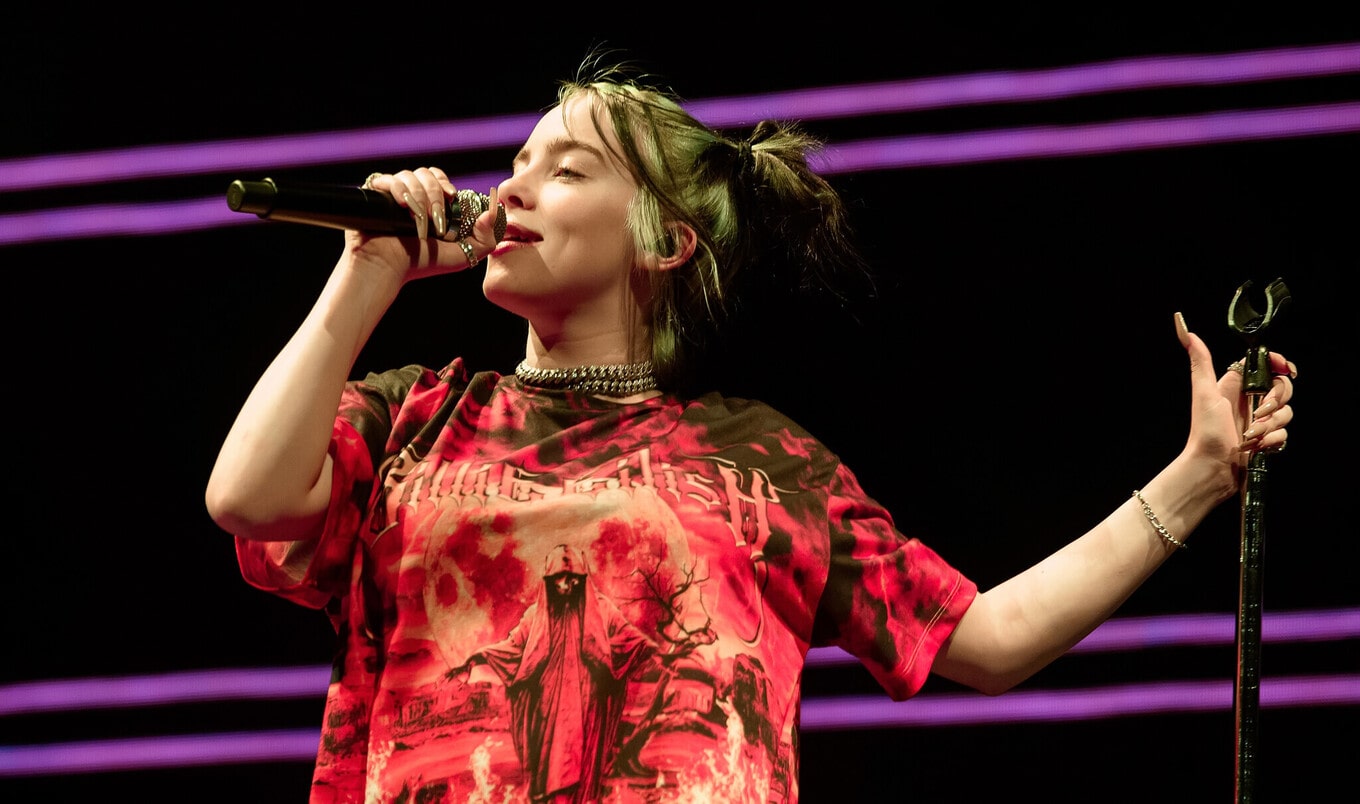Erin McKenna’s journey from comedy sketches to confectionary sketches is nothing short of a real-life fairy tale. Initially drawn to fashion and the glitz of costume design (even once getting to dress Saturday Night Live’s Fred Armisen), McKenna eventually found her true calling in the kitchen, crafting a revolution with Babycakes—later rebranded as Erin McKenna’s Bakery.
At her beloved, pink-accented bakeries in Manhattan, Los Angeles, and Orlando, vegan and allergy-friendly baking isn’t just about substituting ingredients—it’s about reimagining the art of sweet indulgences. They’re not just spaces, but whimsical sanctuaries for those often overlooked by traditional patisseries (her tenets upon opening were 1. Create a bakery free of harmful ingredients, and 2. Wear cute uniforms). And for McKenna’s countless fans and devotees, her cookbooks are go-to treasures of inventive recipes that empower home bakers to create inclusive desserts that everyone can enjoy.
For nearly two decades, McKenna has set new standards for vegan baked goods, proving that dietary restrictions don’t have to mean a compromise on taste or beauty. VegNews editor Jasmin Singer sat down with McKenna to discuss her pioneering role in the culinary world and the far-reaching impact of her work that appeals to vegans and non-vegans alike.
JASMIN SINGER: Erin, your work has been so influential in the vegan community and beyond. What inspired you to start your bakery?
ERIN MCKENNA: I had so many food allergies, and I knew what the typical bakery offering was, and it was depressing. But I would still eat it because I just was like, “Give me something sweet.” But then I thought, “Why are we settling for this? Why do people with food allergies, people who are vegan, why do they get the crumbs?” I just wanted to go beyond that.
JS: And you certainly did. But first, I want to ask you about something that really tickles me: your initial dream of working as a costumer in the sketch comedy world. Tell me about those early aspirations.
EM: Okay, so I am a strong believer in following your path and your soul’s desires in life. But it hasn’t always been easy. In high school, I was walking through Nordstrom and said to myself, “I know what they should be buying, what’s going to move.” I was always a little bit ahead on trends—I would know what was coming up next. Somebody told me that’s called a buyer. And I said, okay, that’s what I want to do with my life.
But then someone in the industry talked me out of it. “It’s so boring. It’s a lot of paperwork.” I just kind of let them dull that drive and desire in me. I was too young to understand that just because that person’s experience wasn’t good, it doesn’t mean that will translate to me. But I let it shape my choices.
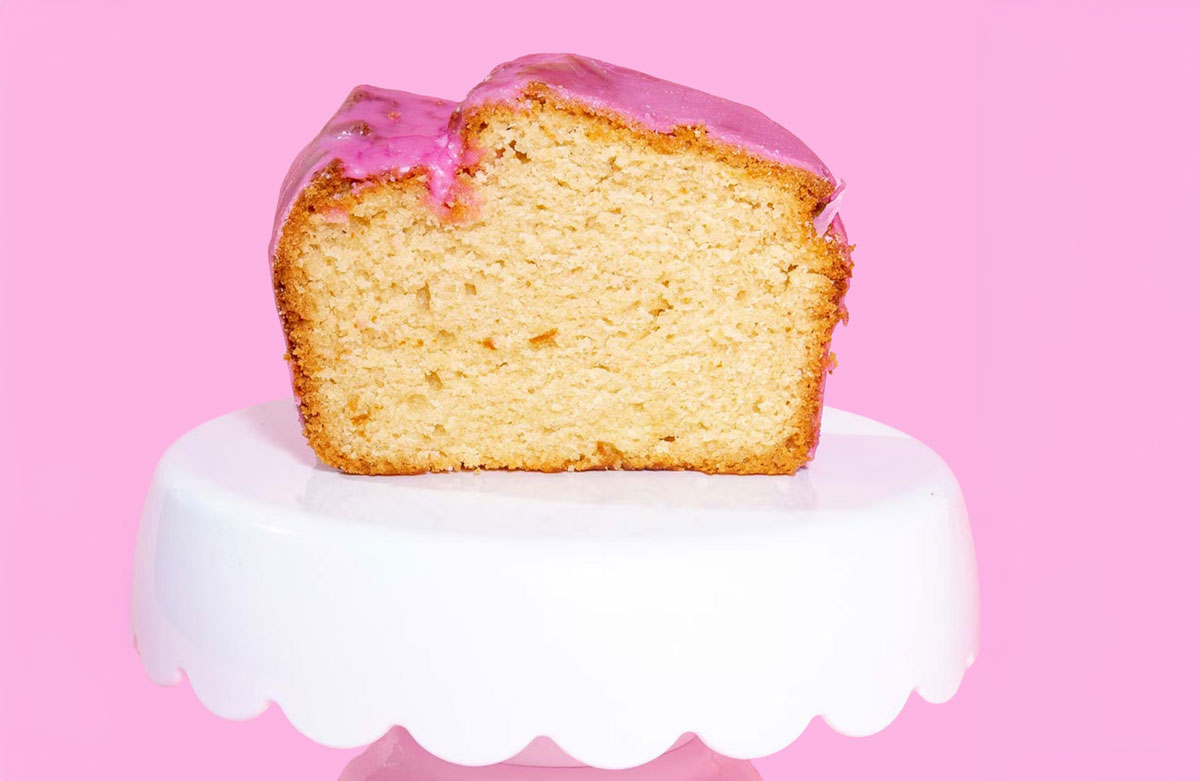 Erin McKenna’s Bakery/Instagram
Erin McKenna’s Bakery/Instagram
So I go through the twists and turns of college where I got into communications. Then I graduated and I was like, so what do I do next? I had been a waitress since I was 18, so I continued to do that.
But I was still very influenced by what older adults were telling me I needed to do with my life. They said, “You can’t be a waitress forever,” which I kind of wanted to be, but that’s another discussion. I thought, well, I think I’m really good with fashion, so maybe I should just get into costuming— specifically for sketch comedy. I always thought that the outfits the comedians were wearing were almost the funniest part. So I ended up somehow connecting with a costumer at Saturday Night Live and they did the same thing to me. “This job sucks. It’s a tiny room. There are a lot of big personalities. It’s really volatile. You’re gonna hate it.” I was still very much influenced by outside opinions.
Then I had what I would call a spiritual awakening. I was reading The Power of Intention by Wayne Dyer, about how to connect with your purpose through connecting with your source of creativity. So I was like, “I’m gonna put what he’s saying to the test and see if it works.” It was basically meditating, opening up, and just saying “thank you” for whatever’s coming.
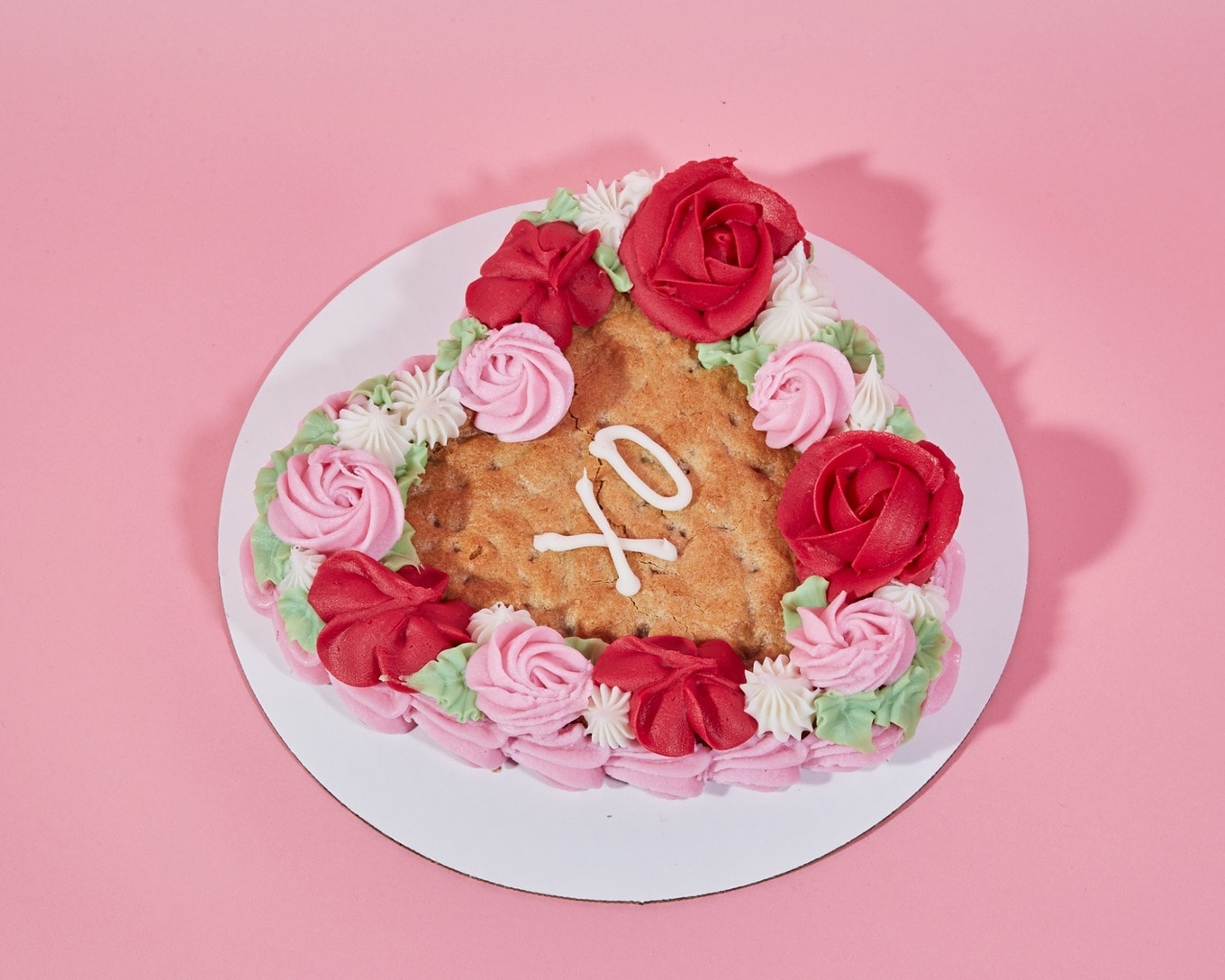 Erin McKenna’s Bakery/Instagram
Erin McKenna’s Bakery/Instagram
JS: And that’s what helped you finally shut out the noise and follow your path—your soul’s desire, as you put it—to Babycakes?
EM: Exactly. I remember I was at a party for kids. And the mom said, “Oh, I had to make a baby cake for my kid’s first birthday. I’m sorry if it tastes weird, but babies aren’t supposed to have certain ingredients.” And I was like, “You know, somebody should come up with a bakery called Babycakes for all of those babies with food allergies—and for vegans.” And I spent three days trying to convince everyone I knew who was a chef to do this. I was like, “I already know this is gonna be huge. This has not been done yet, it is a big opportunity.” I was sitting in meditation, and something inside me said, ‘You do it.’ And I didn’t know how to bake or anything …
JS: You started all this without knowing how to bake?
EM: Yeah! This is going to sound crazy, but it was through that meditation. I wanted it to be whole grain. I wanted really high-end ingredients that were gonna propel you toward better health. I felt like a lot of vegan stuff was like texturized soy protein—things that really upset my stomach. I wanted to flip it on its face. Then I opened my first bakery in New York in August 2005.
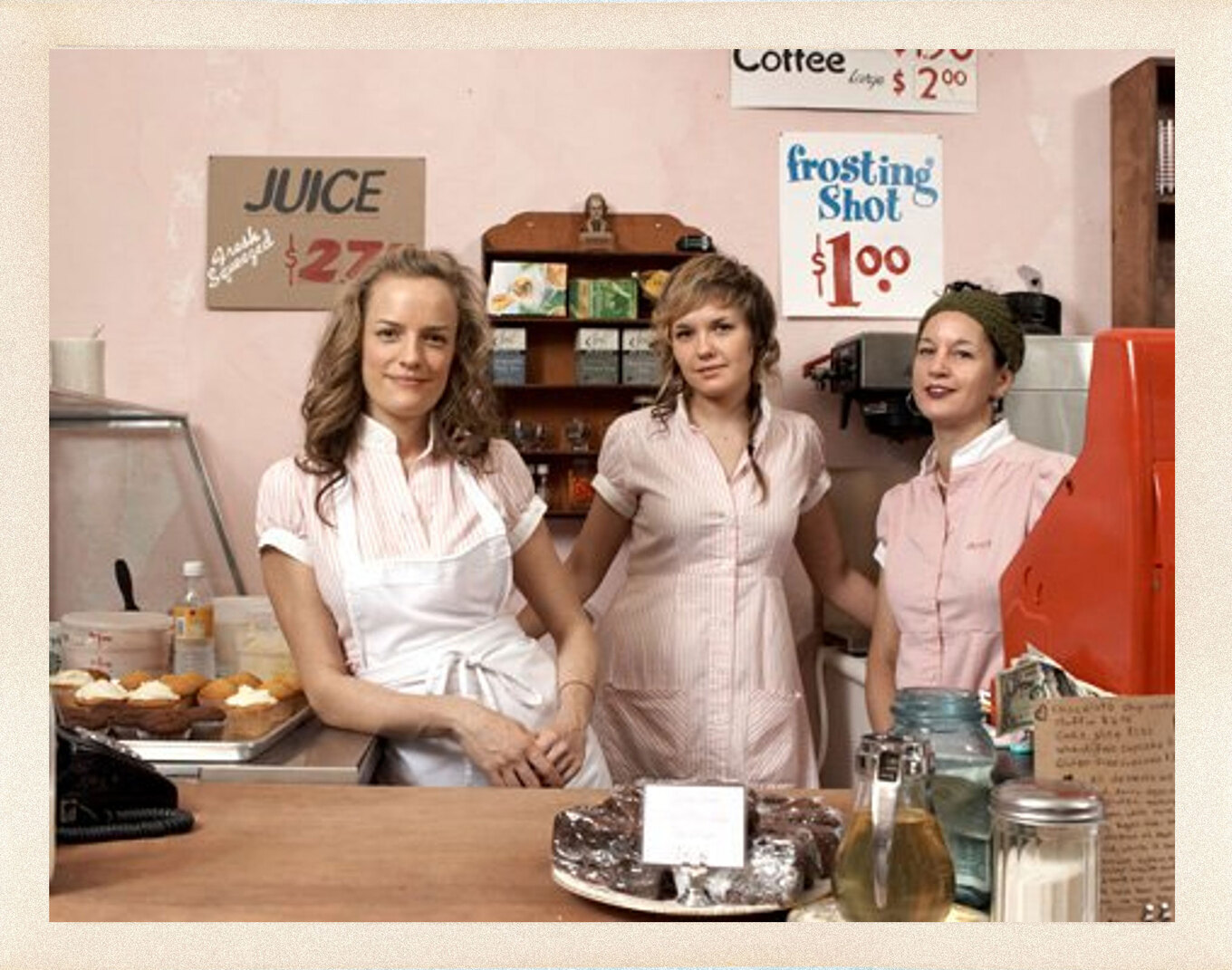 Erin McKenna’s Bakery/Facebook
Erin McKenna’s Bakery/Facebook
JS: And to do it all vegan during that sort of big cupcake craze of the early 2000s.
EM: Yeah, in the beginning, I didn’t put up signs that said we’re vegan or gluten-free or anything. In my marketing brain, I knew from working in restaurants the attitude around vegan food. We just didn’t have signs out and then when people tried it, we’d say, “Oh by the way, it’s vegan, gluten-free, soyfree.” And people were just like “Oh my gosh, wow. I wasn’t expecting that.” Then it became a word of mouth sort of thing.
JS: Well, thank you for that early work, because look at where we are now.
EM: Thank you. It’s just really magical to be in my place where I got to be the one to do it. Because I honestly feel like if I didn’t do it, someone was right behind me who would have. But I think my vision was very specific as far as what I wanted to achieve.
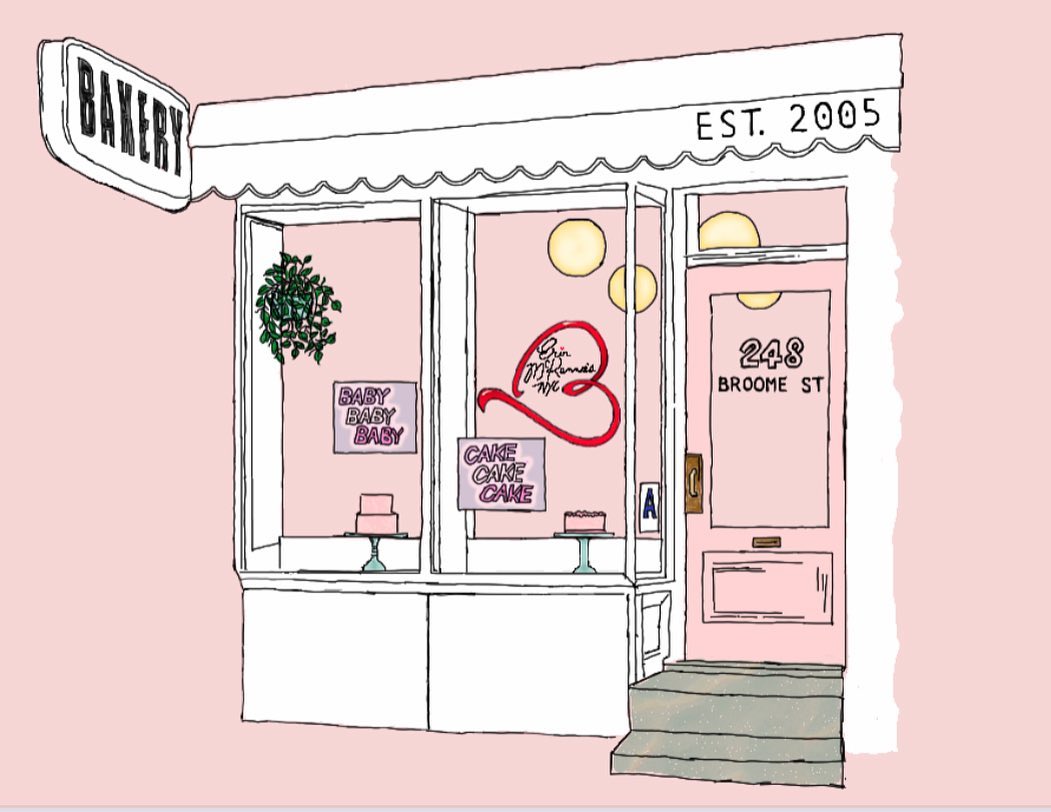 Erin McKenna’s Bakery Instagram/@sarahtorialist
Erin McKenna’s Bakery Instagram/@sarahtorialist
JS: And when did things really start to take off and grow into this bigger presence you have now?
EM: I remember it was a Monday, and I was baking and working the counter early in the day by myself—maybe three weeks in—and a teacher came and bought all the cupcakes. So I had to rebake everything. I had just frosted the new batch, and this older lady comes in, sits down, and says, “All right, just give me a cupcake.” And so I gave her what I freshly made, and she started asking me questions. She’s asking me about ingredients and she’s taking notes. And she’s like, “I’m Florence Fabricant from The New York Times. I’m gonna put you in this week’s Dining Out back page.”
JS: That must have been such an exciting moment—and what great exposure.
EM: Definitely. All these parents of kids with food allergies, parents of children with autism, and vegans were seeing the article. And so it all of a sudden was like, boom! We were so busy. And from there, it was just kind of like dominoes. The producer for Martha Stewart became a customer because she saw the article.
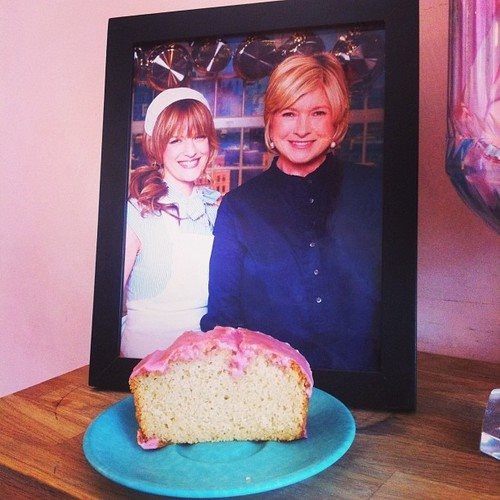 Erin McKenna’s Bakery/Instagram
Erin McKenna’s Bakery/Instagram
JS: And the rest was history.
EM: Yeah, we became kind of national news. A lot of people from Los Angeles were coming in and just stockpiling during their visits to New York to bring back home. Jason Schwartzman and I became friends early in the bakery. He was one of my first customers. We met, started talking, and became friends, and he was just like, “You’ve got to open in LA.” So in 2009, I decided I would do that.
My first store was in downtown LA. And then the next point of expansion was kind of at the same time. My sister—who’s a lot like me, we get an idea and we just do it— was a massage therapist living in Chicago at the time, and she had, like, five billionaire clients. And one of them was this guy named Larry Levy who owns just about every concession in every stadium and a ton of stuff at Disney, too. They were getting rid of McDonald’s in Downtown Disney in Orlando, and they asked him if he would come up with a healthy concept. He had heard my sister talk about me, and was like I gotta have her in that. So he brought me in.
JS: Wow, that’s the “being open and saying thank you to blessings” bit you mentioned earlier at work.
EM: Yes! Everyone asked me how I got there, and I’m like, “I did nothing. He came to me, and I was like ‘sure.’” So I opened in Disney, eventually closed downtown LA, and I opened in Larchmont Village.
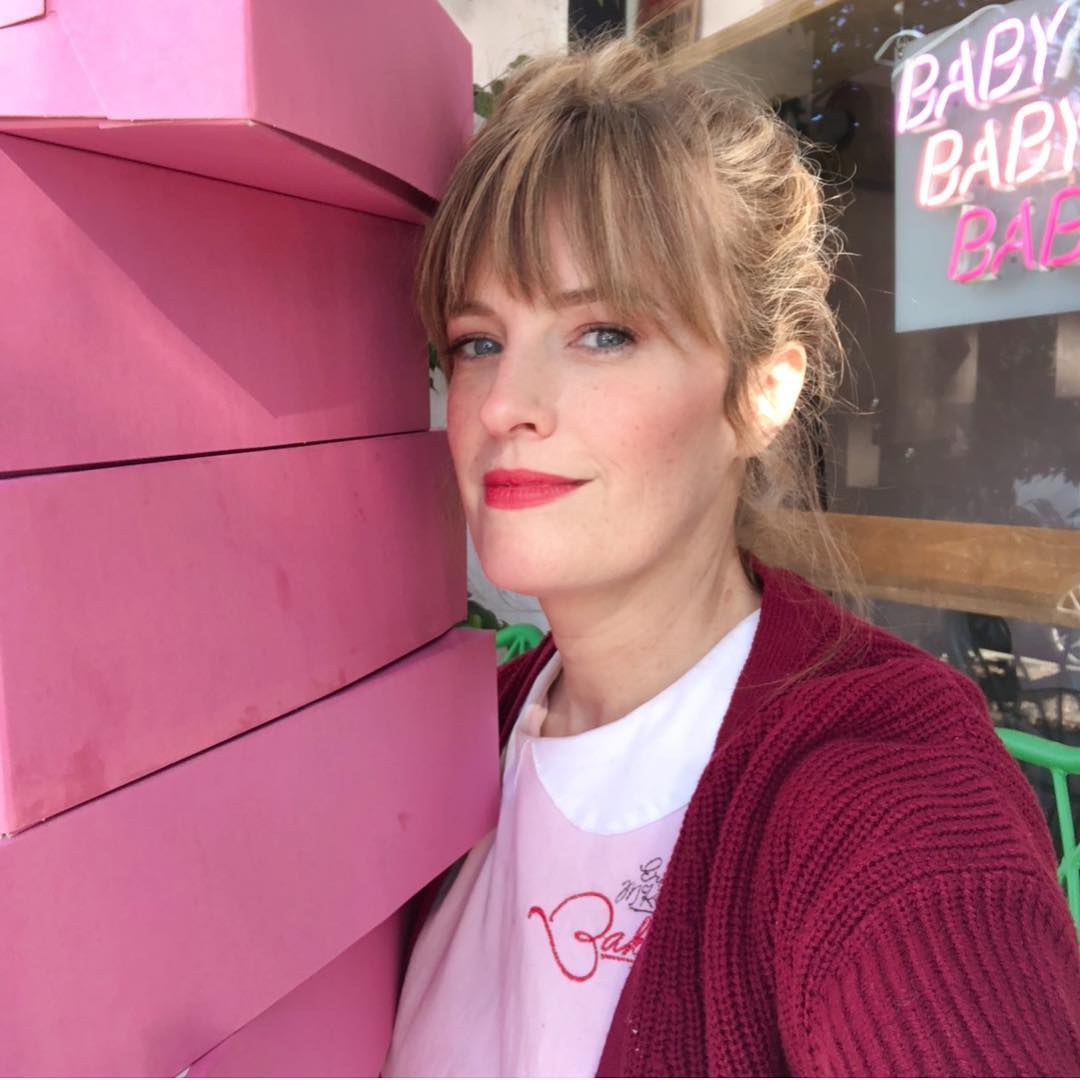 Erin McKenna’s Bakery/Instagram
Erin McKenna’s Bakery/Instagram
JS: With all the ups and downs, what advice would you offer to a younger version of yourself or someone starting out now?
EM: There isn’t just one path to success. Just continue to follow what your interests are, even if they lead to failure. You’ll be surprised by how that is going to play a part in what becomes a big piece of your life. All my failures became a thread in what I wove of my life. “There isn’t just one path to success. Just continue to follow what your interests are, even if they lead to failure. You’ll be surprised by how that is going to play a part in what becomes a big piece of your life.”

